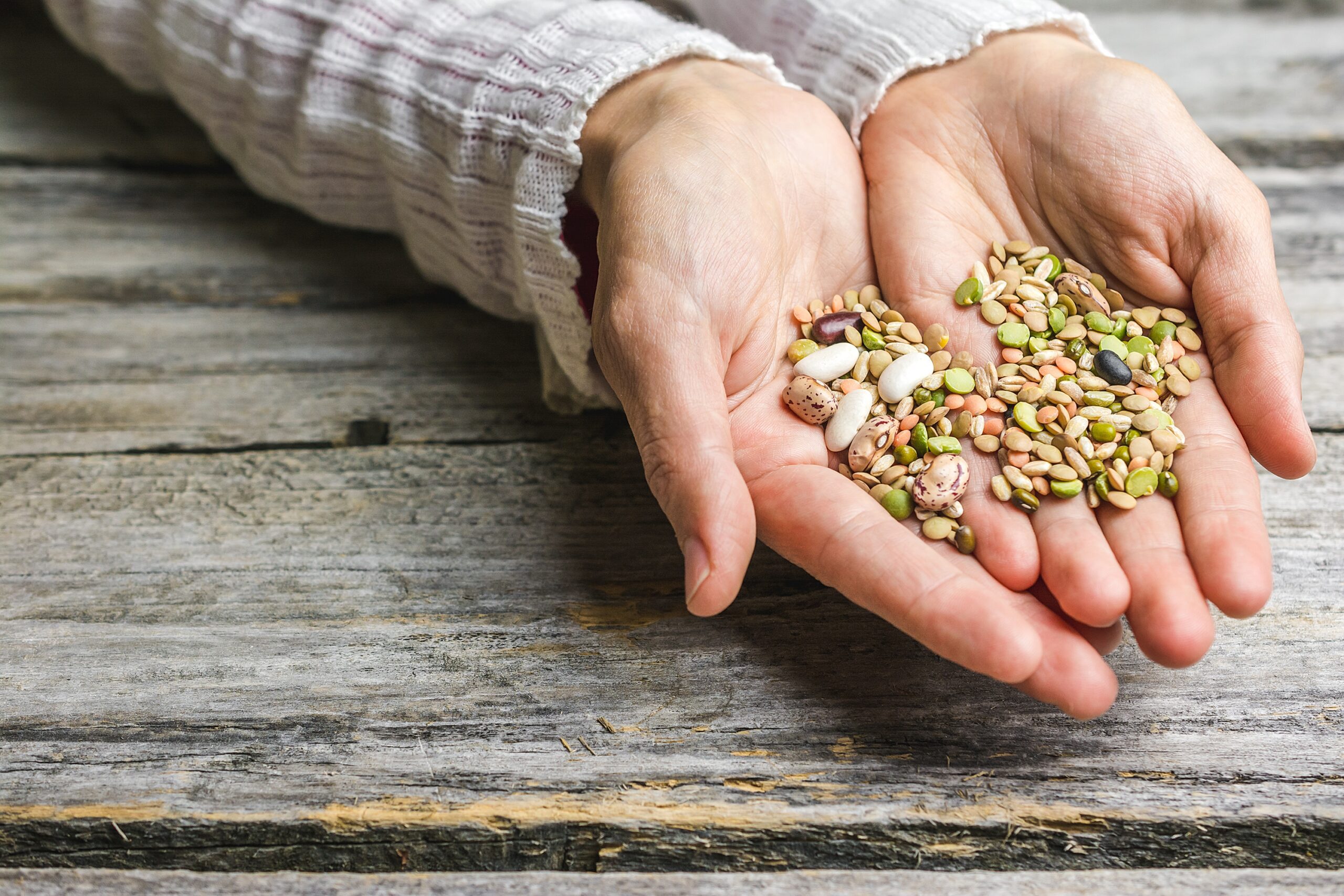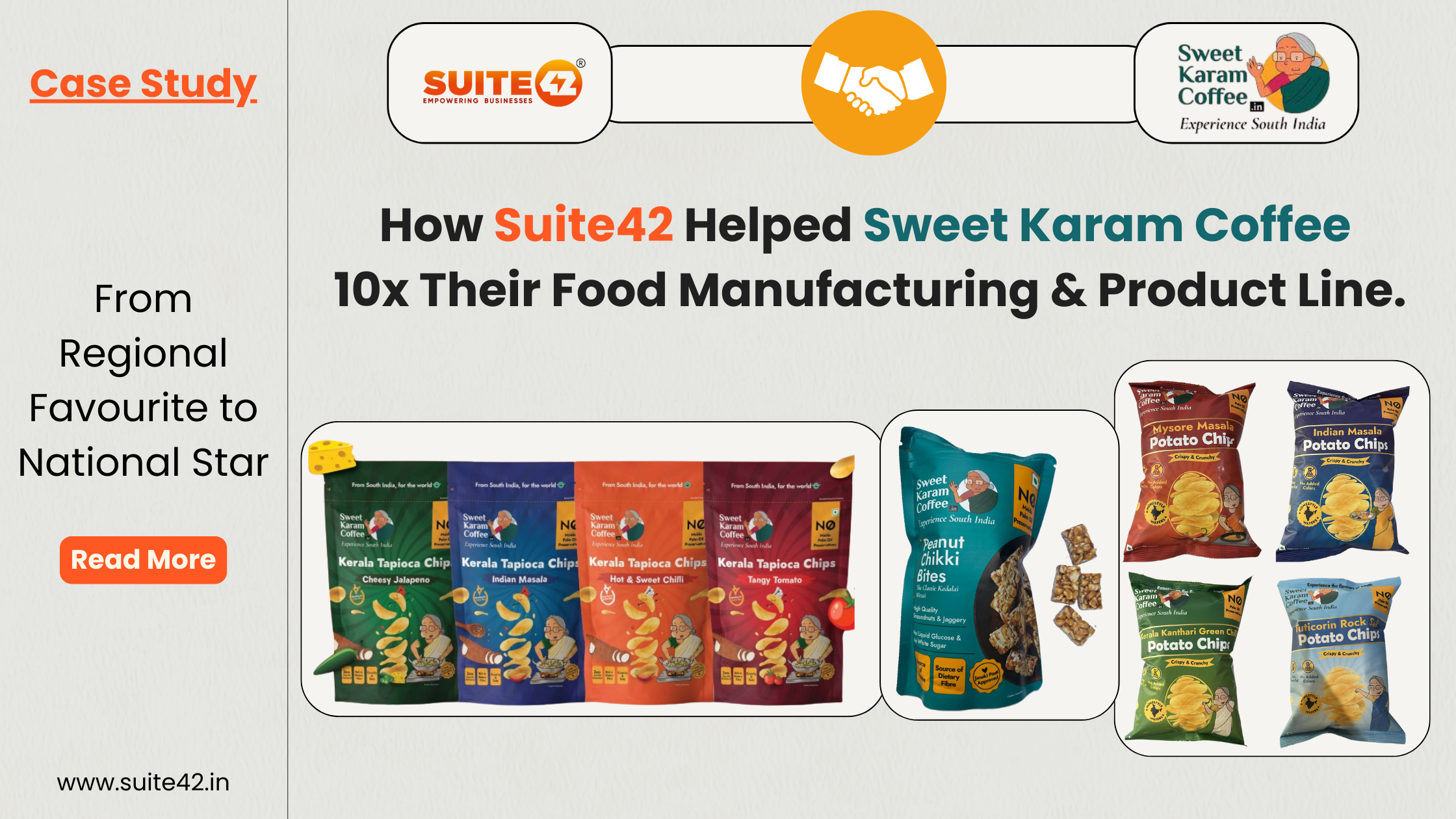
Contract Manufacturing: Your Partner in Millet-Based New Product Development
Introduction
What are millets?
Millets are a diverse group of small-seeded cereal grains that have been cultivated for centuries in Africa and Asia. They are highly nutritious, gluten-free, and drought-tolerant, making them a sustainable and healthy alternative to wheat and other traditional grains. Millet grains can yield in dry and high temperatures as well. One of the reason why millets are considered as smart foods.
Why are millets important?
Millet foods are important for a number of reasons. First, they are a nutritious source of food that can help to address global food insecurity. It’s a high in fiber foods. Second, millets are drought-tolerant and can be grown in a variety of climates, making them a sustainable crop
It is considered one of the best choices in the face of climate change. Third, millets are gluten-free and can be enjoyed by people with celiac disease or gluten intolerance.
What is the millet revolution?
In recent years, there has been a growing interest in millets among consumers and businesses alike. This is due to a number of factors, including their nutritional benefits, sustainability, and versatility. As a result, there is a growing market for millet-based products.
Understanding the International Year of Millets
The UN’s declaration of 2023 as the International Year of Millets signifies the global recognition of millets as a sustainable crop. This recognition not only bestows honor but also sets forth a path of responsibility. The aim is to promote millets as vital components in the global quest for sustainable agriculture, reflecting the grains’ potential to bring about environmental and nutritional change on a global scale.
Millets: Multiple Benefits
Millets are one of the 6th most important cereal grains in the world. It has the tendency to grow faster and mature in almost half the time as wheat or rice. For thousands of years, people have been enjoying the nutritional benefits of millet.

Nutritional Benefits of Millet-based Products
Millets are a good source of protein, fiber, vitamins, and minerals. They are also gluten-free, making them a suitable option for people with celiac disease or gluten intolerance.
Some of the key nutrients found in millets include
Protein: Millets are a good source of plant-based protein, which is essential for building and repairing tissues.
Fiber: Millets are a good source of dietary fiber, which helps to regulate digestion and keep blood sugar levels in check.
Vitamins: Millets are a good source of vitamins B1, B2, B3, B6, and folic acid. These vitamins are essential for energy production, cell metabolism, and cognitive function.
Minerals: Millets are a good source of minerals such as iron, calcium, magnesium, and potassium. These minerals are essential for blood, bone, muscle, and nerve health
Health benefits of Millets Foods
This smart food has been associated with several health benefits, including-
Reduced risk of chronic diseases: Millets may help to reduce the risk of chronic diseases such as heart disease, stroke, and type 2 diabetes. This is due to their high nutrient content, including fiber, vitamins, and minerals.
Improved gut health: Millets products are a good source of dietary fiber, which helps to promote gut health. Dietary fiber helps to feed the good bacteria in the gut, which can boost immunity and improve overall health.
Reduced inflammation: Millet foods are considered healthy foods as they contain antioxidants and other compounds that can help to reduce inflammation. Inflammation is a root cause of many chronic diseases, so reducing inflammation is important for overall health.
Environmental benefits
Millets are a sustainable crop choice due to their drought tolerance and low input requirements. They can be grown in a variety of climates, including arid and semi-arid regions. This makes them a good choice for farmers in developing countries, where climate change and water scarcity are increasing challenges.
Article that might interest you: How to Start Spices Business In India
Diverse Varieties of Millets
There are over 50 types of millets cultivated around the world, but the most common ones can be divided into two categories: major millets and minor millets.
Types of millets
Major millets
Major millets are the most widely grown and consumed millets. They include:
Sorghum: Sorghum is a versatile grain that can be used to make a variety of products, including flour, bread, porridge, and beer. It has a mild, nutty flavor and is a good source of protein and fiber.
Pearl millet: Pearl millet is a staple food in many parts of Africa and Asia. It has a slightly sweet flavor and can be used to make flour, bread, porridge, and snacks. Pearl millet is a good source of protein, fiber, and iron.
Finger millet: Finger millet is a nutritious grain that is often used to make porridge and roti (Indian flatbread). It has a slightly sour flavour and is a good source of protein, fibre, calcium, and iron.

Minor millets
These are less widely grown and consumed than major millet, but they are still important crops in many parts of the world. Some common minor millets include:
Foxtail millet: Foxtail millet is a small, round grain with a mild flavor. It is often used to make porridge and roti. Foxtail millet is a good source of protein, fiber, and vitamins B1 and B2.
Proso millet: Proso millet is a small, yellow grain with a nutty flavor. It is often used to make porridge, bread, and snacks. Proso millet is a good source of protein, fiber, and magnesium.
Kodo millet: Kodo millet is a small, brown grain with a slightly sweet flavor. It is often used to make porridge and roti. Kodo millet is a good source of protein, fiber, and calcium.
Barnyard millet: Barnyard millet is a small, white grain with a mild flavor. It is often used to make porridge and snacks. Barnyard millet is a good source of protein, fiber, and iron.
Little millet: Little millet is the smallest type of millet. It has a slightly sweet flavor and is often used to make porridge and snacks. Little millet is a good source of protein, fiber, and calcium.
Their unique characteristics, flavors, and uses
Each type of millet has its own unique characteristics, flavors, and uses. For example, sorghum is a good choice for making beer because of its high sugar content. Finger millet is a good choice for making porridge because of its creamy texture. Foxtail millet is a good choice for making roti because of its gluten-free properties.
Millet-based products
Traditional millet products
Traditional millet products have been consumed for centuries in many parts of the world. They are often made using simple recipes and techniques that have been passed down through generations. Few examples of traditional millet products:
- Millet flours
- Millet bread and pastries
- Millet porridges and cereals
- Millet snacks
New millet-based products
New millet-based products are being developed all the time as food businesses look for ways to meet the growing demand for millet-based products. These products are often more innovative and creative than traditional millet products. Few examples of New millet- based products:
- Millet pasta
- Millet milk
- Millet yoghurt
- Millet beers and spirits
- Millet-based convenience foods
The Growing Market for Millets
The market for millet-based products is growing rapidly, driven by increasing consumer awareness of their health and environmental benefits. There is a growing demand for new and innovative millet-based products that meet the needs of today’s consumers. Looking at the scope, many brands are looking to venture into this business by outsourcing manufacturing and food labels.
Article that might interest you: A step-by-step guide to cashew processing
Innovations in Millet-Based Snacks
Creative approaches to millet-based snacking
Creative approaches to millet-based snacking are emerging, meeting consumer preferences for healthier choices. For example, millet puffs, millet chips, and millet granola bars are all popular millet-based snack options. These snacks are often made with other healthy ingredients, such as nuts, seeds, and fruits.
Other innovative millet-based snacks include:-
Millet-based crackers: Millet crackers are a crispy and healthy food alternative to traditional crackers. They can be made with a variety of different millet flours and seasonings.
Millet-based cookies: Millet cookies are a delicious and nutritious snack that can be enjoyed by people of all ages. They can be made with a variety of different millet flours, sweeteners, and mix-ins.
Millet-based energy bars: Millet energy bars are a convenient and healthy food that is perfect for on-the-go. They are made with a variety of different millet flours, nuts, seeds, and dried fruits. All nutritional information will be mentioned in the food label.

Meeting Consumer Preferences for Healthier Choices
Consumers are looking for healthy and sustainable food options. Millet-based snacks meet both of these criteria. Millets are a good source of protein, fiber, vitamins, and minerals. They are also gluten-free and low in calories.
Millet-based snacks can be a good option for people with dietary restrictions, such as celiac disease or gluten intolerance. They can also be a good option for people who are looking for a healthier alternative to traditional snacks.
Opportunities for new millet-based products
There are many opportunities for new millet-based products in the market. Some potential areas of innovation include:-
Millet-based snacks: There is a high demand for healthy and convenient snacks. Millet-based snacks can be a nutritious and delicious alternative to traditional snacks. Look out for the food labels to give you the right information.
Millet-based beverages: Millet-based beverages, such as millet milk and yogurts, are becoming increasingly popular. These beverages are a good source of nutrients and can be enjoyed by people with lactose intolerance.
Millet-based convenience foods: Millet-based convenience foods, such as ready-to-eat meals and frozen foods, can make it easier for people to incorporate millets into their diets.
Challenges of Millet-based New Product Development
Some challenges need to be addressed in developing new millet-based products. These challenges include:
Lack of consumer awareness of millets: Many consumers are not familiar with millets or their health benefits. This can make it difficult to market new millet-based products.
Limited availability of millet ingredients: Millet ingredients may not be readily available in all markets. This can make it difficult to produce and distribute new millet-based products.
Complex processing requirements: Millets require specialized processing techniques. This can make it costly and time-consuming to develop new millet-based products.
The Role of Contract Manufacturing
In overcoming these challenges, the role of reliable contract manufacturers becomes pivotal. Contract manufacturing is the bridge between innovative millet-based product ideas and their successful realization in the market. Contract manufacturers play a crucial role in ensuring that these products meet the highest standards of quality and safety.
Interesting Information: How Suite42 deliver Quality?
Suite42: Your Partner for Success
One such dependable partner is Suite42, a trusted contract manufacturer with a proven track record in bringing innovative food products to market and providing best contract manufacturing services. With a wealth of experience and a commitment to quality, Suite42 is dedicated to helping businesses turn their millet-based ideas into successful, market-accepted products. Collaborating with Suite42 offers businesses a significant advantage in the competitive world of millet-based product development. Suite42 has established itself as one of the best millet private label manufacturers serving well-known brands globally
Millets – Paving the Sustainable Path
As the International Year of Millets unfolds, it’s essential to underscore the sustainability and health benefits that millets bring to the table. These grains have the potential to reduce the environmental impact of agriculture while nourishing millions. By opting for millet-based products, consumers can play a significant role in promoting sustainability and healthier eating practices. Additionally, businesses have the opportunity to lead the way in embracing millets as part of a more sustainable food production and consumption cycle.
Some specific ways in which millets can help to pave the sustainable path:
Reduced water consumption: Millets are drought-tolerant crops that require less water to grow than other grains, such as rice and wheat. This is especially important in light of the increasing water scarcity challenges facing many parts of the world.
Reduced soil erosion: Millets have deep roots that help to hold soil in place, reducing soil erosion. This is important for protecting soil health and maintaining agricultural productivity.
Improved biodiversity: Millet cultivation can help to improve biodiversity by providing habitat for beneficial insects and pollinators. This can help to boost crop yields and reduce the need for pesticides.
Reduced greenhouse gas emissions: Millet cultivation has a lower carbon footprint than other grain crops. This is because millets require less fertiliser and pesticide inputs, and they produce less methane gas.
Millets: A Global Movement
The impact of millets extends far beyond individual preferences and choices. The global recognition of these grains and the UN declaration signify the beginning of a global movement. Millets have the potential to reshape the food landscape and contribute to a more sustainable and nutritious future, not just in specific regions, but on a global scale. By becoming a part of the millet movement, consumers and businesses can contribute to the global shift towards more sustainable and healthier food choices.
Conclusion
In conclusion, the millet revolution is not just about food; it’s about forging a more sustainable, healthier future for individuals and the planet. As consumers and businesses increasingly embrace the potential of millets, these grains are set to revolutionise the food and beverage industry. The International Year of Millets marks the beginning of a new era, where the world recognizes the importance of these grains in shaping our food future. It’s a journey filled with innovation, collaboration, and the promise of a healthier, more sustainable world. As consumers, businesses, and manufacturers join this movement, they can collectively contribute to making millet a cornerstone of sustainable, nutritious, and eco-conscious eating practices.
If you are thinking of setting up millet-based product for your food business, then the smart way out is to outsource your millet food manufacturing to a reliable food contract manufacturer who also provide private labelling services.
We were featured in Inc42







Leave a Reply